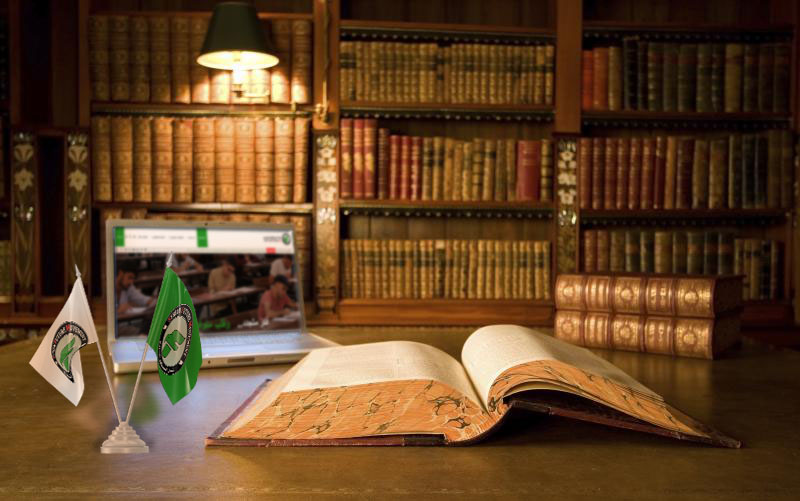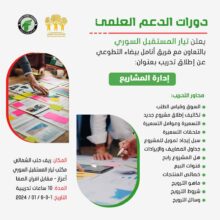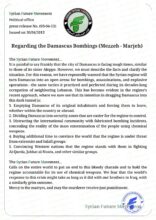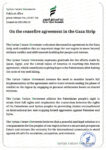Sharaa’s Visit to Saudi Arabia: Security and Economic Interests and Their Regional Implications

For decades, Saudi-Syrian relations have been a mix of strategic alliances and regional rivalries, shaped by the shifting politics of the Middle East. The visit of Syrian President Ahmad Al-Shara’ to Saudi Arabia amid the current geopolitical changes marks a pivotal event that necessitates a deep analysis of its security and economic repercussions, as well as its impact on regional power balances.
This visit comes after years of diplomatic estrangement following the outbreak of the Syrian revolution in 2011, during which Saudi Arabia saw an opportunity to overthrow the Syrian regime.
However, with regional transformations, the growing Iranian influence, and shared security challenges, Riyadh appeared to adopt a new approach based on restoring dialogue with Damascus to bolster its strategic interests. This culminated in inviting Assad to the Arab League meeting, as part of an attempt to intervene in Syria through the “step-by-step” initiative, which we previously discussed in an article titled: The Gulf States and Syria: Where To?
Yet, Syria’s liberation and the victory of its revolution, following the deterrence of aggression, have upended the balance of power and completely reshaped the political landscape.
Security Interests:
Between counterterrorism and restoring regional balance: Saudi Arabia and Syria share security interests related to combating armed groups such as ISIS and other terrorist factions linked to Iran, which continue to pose a threat to regional stability. This makes the visit a step toward broad intelligence and military cooperation that contributes to containing tension hotspots, particularly in border areas, thereby strengthening regional support for Damascus. This is especially relevant as the Syrian administration seeks to assert control over its entire territory—an effort in which Riyadh may assist to some extent in exchange for Syria (Iran’s ally) rejoining the Arab axis led by Riyadh. This new balance could reduce Iran’s ability to use Syrian territory in the future for weapons transfers, supporting militias, or activating sleeper cells of the deposed regime.
Economic Interests: Reconstruction and Strategic Partnerships
Rebuilding war-torn Syria requires massive investments, estimated at $400 billion according to the United Nations. In this context, Saudi Arabia, as one of the largest economies in the region, is a potential partner for financing infrastructure projects such as roads, airports, and public facilities, opening opportunities for Saudi companies to enter a promising market.
Economic partnership between the two countries could also revive trade link projects, particularly in energy-related sectors, such as natural gas pipelines or land transport networks connecting the Arabian Gulf to Turkey and Europe via Syria. This integration would strengthen Riyadh’s position as a regional economic hub and restore Damascus’ historical role as a bridge between East and West.
It is also worth noting that Saudi Arabia possesses extensive expertise in the energy sector, while Syria needs to rehabilitate its devastated oil industry. Thus, agreements could include Saudi investments in Syrian oil fields or deals to export Saudi oil through Syrian ports to European markets, yielding mutual benefits.
Forecasting the Future of Relations and Their Impact on the Region
The visit heralds a new phase in Saudi-Syrian relations and could redefine regional alliances in the Middle East. If Riyadh and Damascus succeed in transforming these security and economic interests into an effective partnership, it would lead to the end of Syria’s alignment with another opposing or rival axis to Saudi Arabia. This would enhance Saudi influence in other related regional issues, such as the Lebanese file and the Palestinian-Israeli conflict.
Challenges
Challenges remain, with the most significant being the international stance on the Syrian regime, particularly U.S. and European sanctions, which may limit Saudi Arabia’s ability to invest freely. Additionally, Riyadh may face competition from other regional countries, such as the UAE, Turkey, and even Qatar, all of which are also seeking to strengthen their presence in Syria. The balance of interests and the international desire to create a more stable regional system remain pivotal in shaping the future phase towards competitive, integrated, and constructive developmental cooperation.
Finally, the Syrian Future Movement is committed to supporting all efforts that strengthen the relationship between Syria and Saudi Arabia, in a way that serves the interests of both countries. We believe the time is right to resolve all regional issues, with Saudi Arabia playing a key role for the reasons mentioned, along with the often overlooked factor of the alignment in thought and behavior between Syria’s new administration and the leadership of Saudi Arabia (a topic we will dedicate a separate study to at the appropriate time).
We, at the Syrian Future Movement, recommend resolving all challenges facing this emerging relationship through actionable programs that place “security” and “economy” at the forefront of the new phase, benefiting all parties without exception.
As we write this article, we find it appropriate to share a statement issued by the Syrian presidency, which confirms the conclusions we have reached. It reads as follows:
“I extend my sincere thanks to my brother, His Royal Highness Crown Prince Mohammed bin Salman, for the warm reception and hospitality. Today, we held an extensive meeting in which we sensed and heard a genuine desire to support Syria in building its future, as well as a commitment to supporting the will of the Syrian people and the unity and territorial integrity of their land.
During the meeting, we had in-depth discussions and talks on various fields, working to enhance communication and cooperation at all levels, especially in the humanitarian and economic areas. We discussed extensive future plans in the fields of energy, technology, education, and healthcare, aiming together for a true partnership that seeks to preserve peace and stability in the entire region and improve the economic situation of the Syrian people. This, in addition to continued political and diplomatic cooperation to strengthen Syria’s role in Arab and global positions and issues, particularly after the discussions held in the Saudi capital, Riyadh, last month.”
Ahmad al-Sharaa
President of the Syrian Arab Republic.
The Political Office
Research Team
Department of Research and Studies
Articles
Syrian Future Movement






